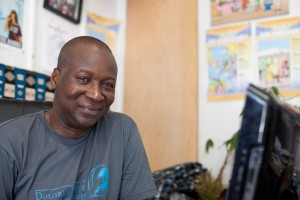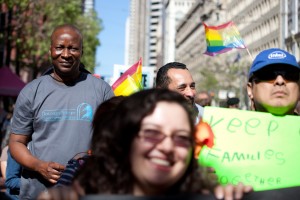Yesterday's immigration rally in Washington, D.C., and the movement behind it have been propelled largely by Latino and Asian immigrants. But often missing from the conversation about immigration reform are the roughly 3 million immigrants of African descent. And their lack of visibility means their struggles with the immigration system aren’t necessarily on Congress’ agenda. But Africans and Afro-Caribbeans in the Bay Area are part of a growing movement to influence the debate.

From his cramped office in San Francisco’s Mission District, African Advocacy Network program Director Adoubou Traore helps new arrivals from Africa find jobs, housing and, not least of all, immigration solutions. But he’s not convinced legislation from Washington will help his clients much.
“Immigration reform is mostly targeting people who are undocumented,” Traore said.
But that leaves out quite a few people, including refugees, and people with what’s called temporary protected status, or TPS, from impoverished or war-torn countries such as Haiti, Somalia and Sudan.
“The fact is that were you on the TPS, you never become an American citizen. You never become a permanent resident. You never be able to reunify your family here,” Traore said.
Then there are asylum seekers, like the man sitting across from Traore. Kevin, who because of his uncertain legal status doesn’t want to use his real name, fled civil war in his native Chad in 2009. When Kevin arrived in the United States, he was told his request for asylum would take two years to decide. Due to overburdened courts, it has now been almost four.
